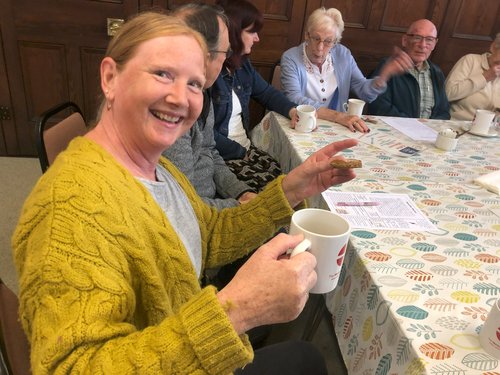
What does it mean to live in a rural area? Our imagination often takes us to a pretty cottage, peaceful meadows and bird song. However, the reality can be less picturesque and more complex. Yes, the cottages are real – we have seen the pictures – but so is the low pay, insecure employment, unaffordable housing and poor public transport.
Rural poverty in the UK is a pressing concern, with statistics revealing the depth of the issue. According to a report by the Joseph Rowntree Foundation, "Around one in five people in rural areas are living in poverty. The poverty rate for pensioners is higher in rural than in urban areas."
The rural aspect of poverty presents its own set of challenges. Rural poverty is not only financial, notably due to fuel costs, transport and higher prices for food but can also be emotional, particularly for people living on their own.
In the picturesque village of Cayton, on the outskirts of Scarborough, the Methodist Church is at the forefront of addressing the many challenges of rural poverty. Tom Clayton, a Community Lay Worker in the North Yorkshire Coast Methodist Circuit, is building communities and fighting rural poverty.
Cayton Methodist Church has established initiatives like "Tea and Toast" - a community hub where people can gather and share fellowship. “We wanted to be missional and bring something new and needed to the community and Cayton seemed the perfect place to start,” adds Tom.
The work started in September 2023 when meetings and a café church service started a conversation with the congregation about what the village needed. "Tea and Toast" offers free refreshments, school uniforms for families and games.
As a former teacher, he was also able to start building a relationship with schools and see what the church could do for them.
The Methodist Church's efforts extend beyond addressing financial hardship, recognising the interconnected nature of poverty. Tom emphasises the importance of making resources accessible to all, stating, "The thread that binds our projects together is that we make them as accessible as possible by making sure that they are free and available for everybody."
One of the primary goals of the Methodist Church's rural ministry is addressing the issue of loneliness, which Tom identifies as a form of hidden poverty. "Part of the issue, particularly in rural areas, is not just financial poverty but loneliness," he says. "We provide spaces for people to meet and mingle, and we do that for free which is another important aspect."
Taking care of families is also important for Tom. The school uniform recycling scheme based in Scarborough’s town centre is a game changer for many families from the town and all the villages nearby. The “giveaway” events are free and have benefited hundreds of families so far.
Engaging with the local community is crucial to the success of these initiatives. Tom shares, "We have been able to have discussions with local authorities and partners to let them know what we are doing and that they can always signpost people in our direction."
While the challenges are significant, the rewards of rural ministry are evident in the lives touched and the relationships forged. As Tom states, "We're doing our best to work with people and make sure that the things that we offer, particularly around family work, are affordable and ,wherever possible, are free."
Through initiatives like "Tea and Toast," school uniform recycling programs and collaborative efforts with local organisations, the Methodist Church is making a tangible difference in the lives of those affected by rural poverty. By fostering a sense of community, providing practical resources, and addressing the emotional toll of isolation, this rural ministry exemplifies the church's mission to serve and uplift those in need.
